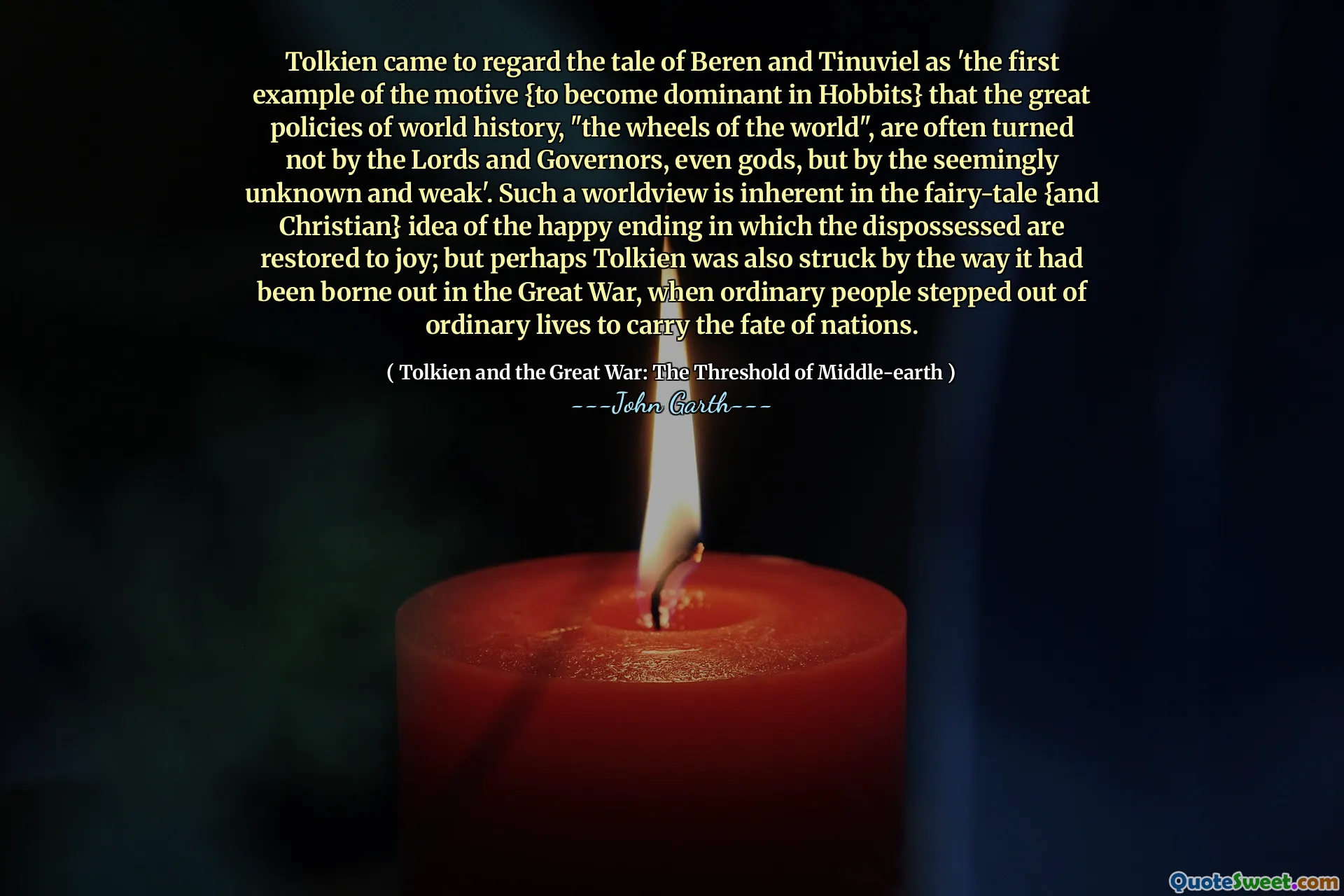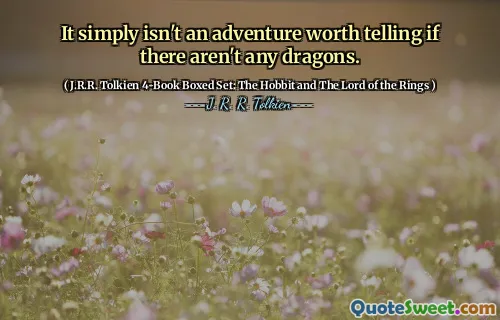
托尔金开始将贝伦和蒂诺维尔的故事视为“动机的第一个例子{在霍比特人中占主导地位},即世界历史的伟大政策“世界轮子”通常不是由上议院和州长,甚至是神灵而来,而是看似不知名和虚弱的。这样的世界观是童话故事{和基督徒}关于被剥夺被剥夺的幸福结局的观念的固有的;但是,当普通百姓走出普通的生活以承担国家命运时,托尔金也被托尔金在大战中所遭受的震惊。
(Tolkien came to regard the tale of Beren and Tinuviel as 'the first example of the motive {to become dominant in Hobbits} that the great policies of world history, "the wheels of the world", are often turned not by the Lords and Governors, even gods, but by the seemingly unknown and weak'. Such a worldview is inherent in the fairy-tale {and Christian} idea of the happy ending in which the dispossessed are restored to joy; but perhaps Tolkien was also struck by the way it had been borne out in the Great War, when ordinary people stepped out of ordinary lives to carry the fate of nations.)
托尔金将贝伦和蒂尼维尔的故事视为他作品中反复出现的主题的原型,尤其是在霍比特的背景下。他认为,历史的重大变化通常是由于看似微不足道和无能为力的行为而不是强大或神圣的统治者的行为。这种观点反映了一个更深层次的童话故事和基督教对幸福结局的信仰,被压迫者重新获得了欢乐和合适的地方。
这个想法对托尔金特别引起了共鸣,尤其是在目睹了大战之后,普通人在塑造全球事件中扮演着关键的角色。这种经历可能影响了他的信念,即即使是那些看起来虚弱的人也可以深刻影响历史的过程,从而加强了这样一种观念,即经常在最谦虚的角色中发现英雄主义。







